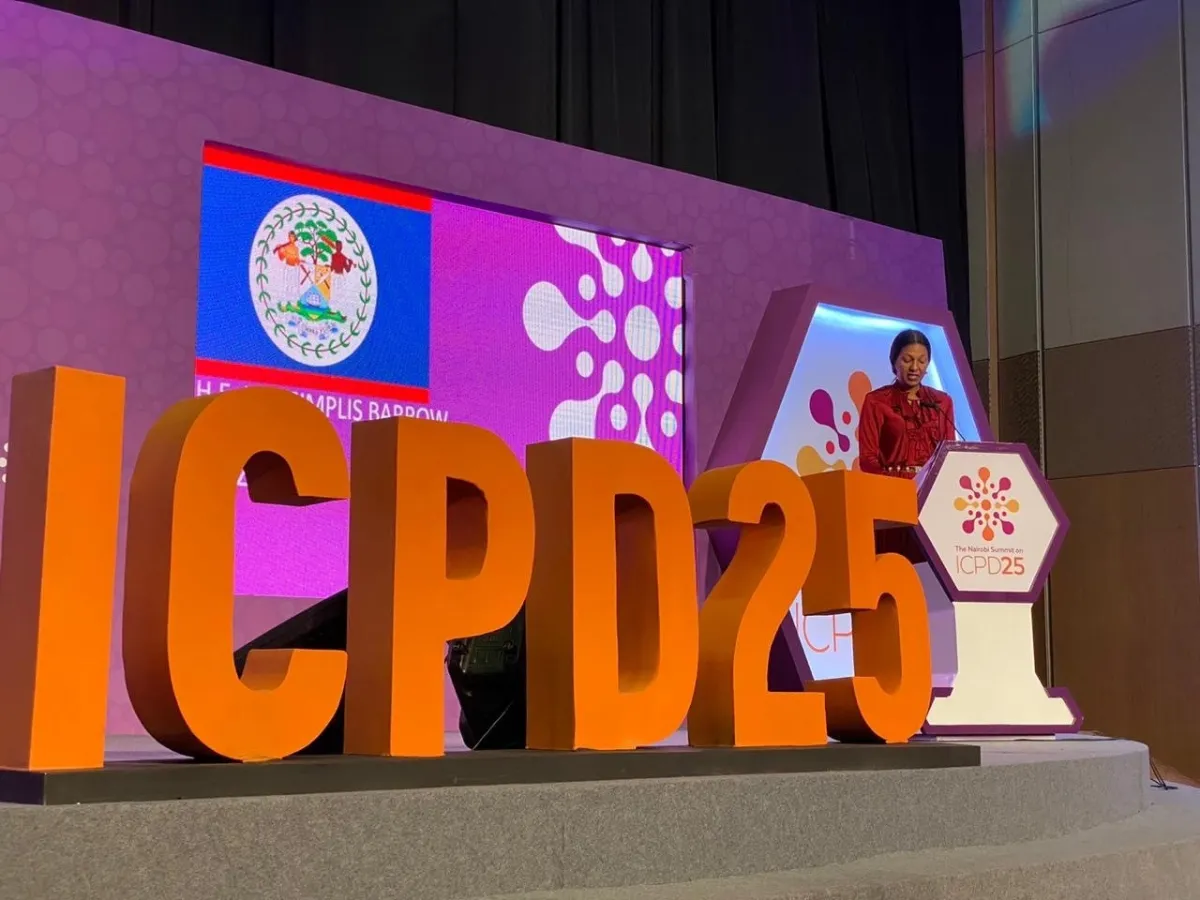By: Asim Nawaz
NEW YORK: The High-Level Commission on the Nairobi Summit on ICPD25 Follow-up (HLC) concluded its work today by launching a report championing a universal, unifying call for sexual and reproductive justice.
Four years after the landmark 2019 Nairobi Summit, and as preparations gear up to mark the thirtieth anniversary of the 1994 International Conference on Population and Development (ICPD), the Commission’s final report calls for simultaneously tackling multiple forms of discrimination and barriers to sexual and reproductive rights.
Entitled Sexual and Reproductive Justice Cannot Wait: All Rights, All People, Acting Now, the report urges diverse movements for justice, including those advocating for sexual and reproductive rights, youth, gender equality and climate solutions, to join forces in driving deep-seated changes needed around the world.
Commission Co-chair The Right Honorable Michaëlle Jean, former Governor General of Canada, emphasized that “Sexual and reproductive justice is a universal concept, built on sexual and reproductive health and rights. The concept recognizes that structural inequalities and intersecting forms of oppression fundamentally determine sexual and reproductive decision-making.”
Co-chair H. E. Dr. Jakaya Mrisho Kikwete, the former President of the United Republic of Tanzania, stressed that sexual and reproductive justice requires better socioeconomic development overall. He stated, “The global efforts at development within societies must be underpinned by sexual and reproductive justice. If we are to see a world which is fair and inclusive, a justice perspective has to be central to the attainment and transformation of these rights to empower all humanity.”
Education, fair and equal pay, universal social protection, the elimination of gender-based violence and a healthy environment are among the factors determining whether or not people realize sexual and reproductive justice, rights and choices.
Dr. Natalia Kanem, UNFPA Executive Director, commended the Commission on bringing critical data and evidence to bear to advance sexual and reproductive health, rights and justice for all, and providing a key bridge between the Nairobi commitments and ICPD30 in 2024. She said, “The report launched today outlines the path forward, both collectively and individually, to meet the 12 core Nairobi commitments and achieve three transformative zeros: zero unmet need for contraception, zero preventable maternal deaths, and zero gender-based violence and harmful practices.”
The report includes a global monitoring framework developed by the High-Level Commission. It reveals some gains by region over the past three years, including improved maternal health in Northern Africa and Western Asia. Strides in youth engagement and empowerment are evident in Europe and Northern America, Oceania, and Eastern and South-Eastern Asia.
But globally, the framework indicates no significant progress on the full, effective and accelerated implementation and funding of the ICPD Programme of Action. Regressive forces are slowing uptake of inclusive sexual and reproductive health policies. Services in humanitarian crises remain limited despite escalating needs. Investing in youth employment and education is far off track. Rates of child marriage, especially among girls, and births to mothers under age 18, remain alarmingly high.



